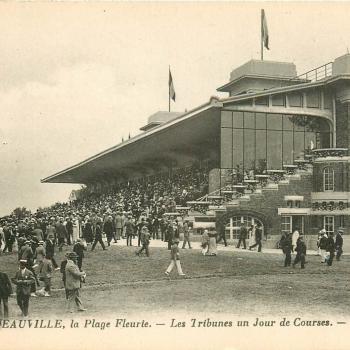White men can become toxic for different reasons. Once it happens, it’s almost impossible to recover. H.L. Mencken’s reputation is one example. Here’s an excerpt from a recent article about the freedom that American ideals give to persons to hang themselves:
The Mencken Club has been in the news lately thanks to the White House’s termination of speechwriter Darren Beattie. His offense was speaking at the Mencken Club in 2016 alongside the alt-right journalist Peter Brimelow. Richard Spencer, one of the chief leaders of the alt-right, has also spoken at the Mencken Club. Beattie denies having anything to do with Brimelow’s or Spencer’s extreme views. His 2016 talk was on “The Intelligentsia and the Right,” and he stands by his remarks, which contained in his estimation “nothing objectionable.” His mere presence at the Mencken Club was deemed guilt by association, though.
Beattie’s career aside, this incident is another dent in the fender of Mencken’s reputation. Commentators on the firing were all too happy to associate Mencken with the alt-right, white nationalists, and racists. The problem for those of us who want to protect what is left of his stature is that Mencken gained his standing precisely by shocking the gatekeepers of good taste. That was by no means all Mencken did, of course. His corpus runs to roughly 50 books—and even these do not include all his columns, articles, and literary criticism. His six volumes of Prejudices—many of his best essays from the 1910s and ’20s about American life—have been republished in the Library of America series, a just canonization. In the 1930s, as the country suffered through high unemployment, food lines, and bank foreclosures, Mencken’s contrarianism did not seem nearly as witty and his reputation faded. Thanks to Harold Ross’s encouragement at the New Yorker, Mencken got a second wind writing articles about his Baltimore boyhood. These led to his popular 1940s memoirs, the so-called “Days Trilogy” ( Happy Days, Newspaper Days, Heathen Days).
A severe stroke kept Mencken from reading and writing for the last eight years of his life (he died in 1956), which left the fortunes of his reputation to the publishing industry. Had he written poetry or fiction (he tried at both and failed), the professors might have kept him alive. But journalism rarely qualifies as literature or history. His contemporaries knew Mencken to be disagreeable and at times offensive. Walter Lippmann, who rivaled Mencken as one of the nation’s leading columnists, acknowledged that when the “Holy Terror from Baltimore” calls you “a swine, and an imbecile,” he “increases your will to live.” But they also recognized his gifts. Joseph Wood Krutch, another gifted midcentury literary critic, wrote that Mencken was the best prose writer in 20th-century America, someone who employed a “vocabulary and a rhythm” that in anyone else’s hands would have been “vulgarity.”
One of the charms of Mencken’s outlook was that no subject was safe, not even himself—his memoirs were successful partly because of their self-deprecation. He began Happy Days by observing that the “science of infant feeding,” when he was born in 1880, “was as rudimentary as bacteriology or social justice, but there can be no doubt that I got plenty of calories . . . even an overdose.” For evidence, Mencken referred to a photograph of himself as a baby that “the milk companies” could well have used in the Sunday papers to whoop up “zeal for their cows.” Ever a hearty eater and drinker, Mencken noted that if “cannibalism had not been abolished in Maryland . . . I’d have butchered beautifully.” Such self-deprecation was not enough to keep an audience after Mencken died. According to Terry Teachout, the author of a superb 2002 biography, between 1956 and 1990, Mencken “seemed little more than a nostalgic relic . . . no more to be taken seriously than Calvin Coolidge.”
We want to know what you think about the upcoming midterm elections. Vote in our poll below!












